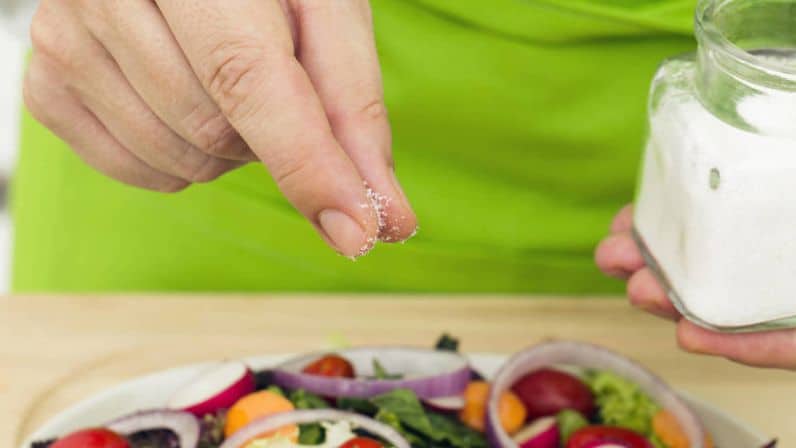If you like cheese, you are in luck. New research uncovers its properties in protecting the health of the heart that is affected by excess salt
According to the World Health Organization, “it is estimated that 17.8 million people affected by cardiovascular diseases died in 2017, which represents 32% of all registered deaths in the world.”
High blood pressure (hypertension) is a major risk factor for cardiovascular disease, especially heart attack and stroke. “The data indicates that reducing sodium intake significantly reduces blood pressure in adults. Sodium is not only found in table salt, but also naturally in a wide variety of foods, such as milk, cream, eggs, meat, and seafood.” But also in processed foods, crackers, and etc.
“The antioxidants in cheese help protect blood vessels from damage caused by salt”
The institution’s recommended sodium intake in adults is less than 2 g / day (5 g / day of salt). The good news, contributed by a group of researchers from the University of Pennsylvania in their new study, is that the antioxidants naturally found in cheese can help protect blood vessels from damage caused by high levels of salt in the diet.
It is not the first time that science points to this dairy product for its heart-healthy properties, despite the scientific debate that has sparked in recent years as a result of its saturated fat content. As nutritionists explain to Revyuh Media “It is a source of proteins of high biological value, rich in calcium, phosphorus and vitamins A, D, B12 and B2, but we must not forget that fats that it has, are saturated and that we must adapt the amount to our diet and nutritional needs.”
Previous evidence
However, an investigation, published in ‘The American Journal of Clinical Nutrition’ and carried out for 22 years with 2,907 adults of 65 years, showed that their intake does not affect cardiac health. What’s more, ‘The Lancet’ magazine also echoed work showing that eating three servings a day of non-skimmed dairy products, such as yoghurt, cheese, and milk, is associated with lower rates of cardiovascular disease and mortality, according to global observational research led by McMaster University (Canada) that was carried out with more than 130,000 people in 21 countries.
The new trial, published in ‘The Journal of Nutrition’ and the responsibility of scientists at the University of Pennsylvania, is a randomized crossover study. The researchers found that when adults ate a high sodium diet, they also experienced blood vessel dysfunction. But when they consumed four servings of cheese a day along with the same high salt intake, they did not experience this effect.
Billie Alba, the study’s lead author, noted that “the findings can help people balance foods that taste good and minimize the risks of eating too much salt.”
The connection
According to Lacy Alexander, another of the study’s researchers, past trials have shown a connection between dairy products, including high-sodium cheeses, and improved heart health measures. “People who consume the recommended amount of dairy servings each day generally have lower blood pressure and better overall cardiovascular health,” she adds. And she continues: “We wanted to take a closer look at those connections and explore some of the precise mechanisms by which cheese, a dairy product, can affect heart health.”
The researchers recruited 11 adults without salt-sensitive blood pressure for the study. Each followed four separate diets for eight days at a time: a low-sodium, dairy-free diet; a diet low in salt and high in cheese; high in sodium and dairy-free; and, finally, another high in both products.
Low-sodium diets led participants to consume 1,500 mg of salt per day, while high-salt diets included 5,500 mg per day. The cheese ones included 170 grams or approximately four servings of several different types of this dairy daily.
At the end of each one-week diet, participants returned to the laboratory for testing. The researchers inserted small fibres under the participants’ skin and applied a small amount of the drug acetylcholine, a compound that signals blood vessels to relax. By examining how each participant’s blood vessels reacted to the drug, the researchers were able to measure their function.
Participants also underwent blood pressure checks and provided a urine sample to ensure that they had consumed the correct amount of salt during the seven days.
They found that after a week of high-salt, cheese-free eating, the participants’ blood vessels did not respond as well to acetylcholine, which is specific to specialized cells in the blood vessels, and they had a harder time relaxing. But this was not seen after the high sodium and high cheese diet.
Alba points out that while the researchers “cannot be sure that the effects are caused by a specific nutrient in the cheese, the data indicates that the antioxidants it contains may be a contributing factor.”
“Consuming large amounts of sodium causes an increase in molecules that are detrimental to the health of blood vessels and the overall health of the heart,” he stresses. “There is scientific evidence that dairy-based nutrients, specifically the peptides generated during the digestion of dairy proteins, have beneficial antioxidant properties, which means that they have the ability to remove these oxidizing molecules and therefore protect against its detrimental physiological effects.”
He also insists that in the future it will be important to study these effects in larger studies, as well as to investigate the possible mechanisms by which dairy products can preserve vascular health.
